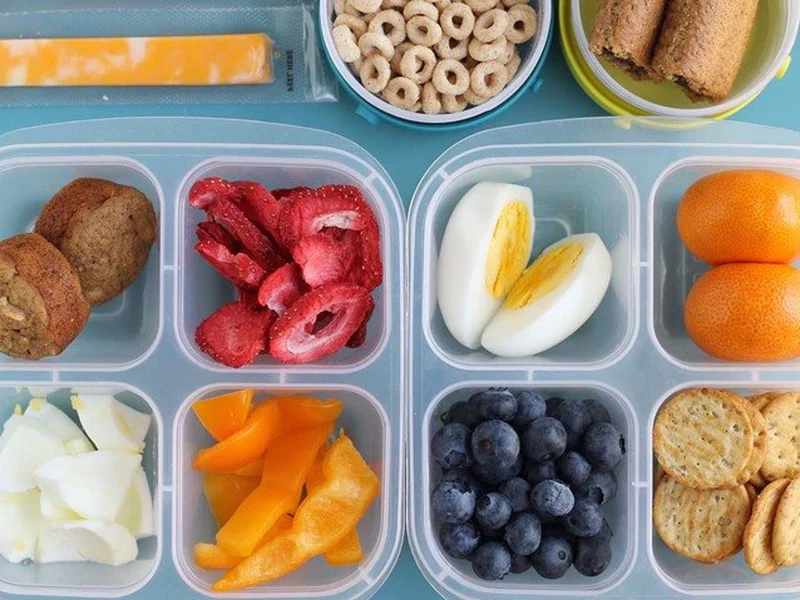
Getting to Know Your Snack Preferences
Understanding Snacking Behavior: The Influence of Self-Identity, Neuroscience, and Socio-Economic Factors
Ever noticed how snack choices are endless, yet we often ignore the deeper reasons behind what we eat? Have you ever asked yourself why you grab a bag of chips over a fresh apple, or why a piece of chocolate feels like the best option during a stressful day? This blog digs into the intriguing layers of our snacking habits, shedding light on how our self-identity, brain science, and social circumstances shape our eating patterns. By the time you finish, you’ll have some practical insights to help you make healthier, more mindful snacking choices.
What Your Snack Choices Say About You
Let’s start with a thought: every snack you pick reveals something about who you are. It reflects your self-identity—how you perceive yourself and the personality traits you carry. More and more people are recognizing how things like being an introvert or perfectionist can influence their snack cravings.
Getting to Know Your Snack Preferences
Understanding yourself is a game-changer. Research shows that different personalities can drive our snack desires. Here’s how it often breaks down:
– Introverts: You might lean toward comforting, familiar foods that feel like a warm hug.
– Extroverts: You may be drawn to trendy treats, perfect for sharing in social settings.
Actionable Steps:
1. Self-Reflection: Pause and think about your snacking habits. Are those chips your go-to when you’re feeling stressed, bored, or celebrating something? Keeping a food journal could help you pinpoint your emotional snack patterns.
2. Explore New Flavors: Why not step outside your comfort zone? Try snacks that resonate with your self-image. Feeling unsure? Invite friends over for a snack-sharing night—you might discover some new favorites!
The Brain’s Role in Your Snacking Habits
Let’s dive into the neuroscience behind our food choices. Research, like a 2019 EEG study, shows that our brains respond stronger to snacks we really love. To put it simply, your brain lights up when you think about those tasty treats!
But here’s where it gets interesting: a 2021 follow-up study revealed that indulging too much in your favorite snacks can actually dull the excitement for them over time. This could lead to eating more than you really want as the thrill wears off.
Mindful Eating Takeaway
It’s essential to keep moderation in mind. Realizing that our brains can get used to certain pleasures can motivate us to savor our favorite goodies rather than munching mindlessly.
Handy Tips:
– Portion Control: Before diving into that big bag of chips, try portioning out a serving. This way, you get to enjoy your snack without flooding your brain’s reward system.
– Mindful Practices: Focus on the experience of snacking. Tune into the textures, flavors, and feelings attached to the foods you choose.
How Your Social and Economic Background Influences Snacking
Let’s talk about another layer: socio-economic factors and how they can influence your snacking choices. Research found that people with a higher socio-economic status tend to snack more, often influenced by social scenes and the variety available to them. On the flip side, those with fewer resources may turn to snacks for emotional comfort or stress relief.
The Stress Connection
The pressures of life often lead us to unhealthy snacking. When stress levels rise, we might reach for snacks as a form of comfort, while those with more means might snack more opportunistically.
Practical Steps:
1. Build a Healthy Surrounding: If life’s feeling stressful, make your snack environment healthier. Stock your pantry with nutritious options rather than highly processed ones.
2. Identify Your Triggers: Take some time to figure out what emotional triggers lead you to unhealthy snacks. Once you’re aware of them, look for alternative stress relief options like a quick walk or diving into a hobby instead of reaching for that snack.
Putting It All Together
Understanding how self-identity, brain science, and socio-economic factors intertwine can help you make smarter snacking choices. Here’s how you can start applying these insights in your everyday life:
1. Self-Monitoring: Keep a simple log of your snacks. Note down when and why you choose what you do. Spotting patterns can be enlightening.
2. Choose Healthier Alternatives: Swap out your go-to unhealthy snacks for healthier alternatives that still hit the spot. Craving something crunchy? Give air-popped popcorn or baked veggie chips a try!
3. Share and Discuss: Open up conversations with friends and family about how psychology and socio-economic status influence snacking. Sharing knowledge can create a supportive environment for healthier habits together.
Wrapping It Up
When you think about it, our snack choices aren’t just about hunger—they reveal a lot about our personalities, emotions, and backgrounds. By understanding these influences, we can work on reshaping our relationship with food, leading to better eating habits and an overall boost in well-being.
So, the next time you reach for a snack, pause for a moment. Reflect: What does that choice reveal about you? What feelings are you addressing? Taking these steps can help you build a healthier snacking routine.
I’d love to hear your thoughts in the comments below! What fuels your snacking choices? And don’t forget to check out our [related content](#) for more tips on mindful eating.
Change doesn’t happen overnight, but by being aware of your choices, you’re making strides toward healthier habits. Remember, snacking can be a way of nurturing not just your body, but your mind as well.
Hashtags: #snack #snacking #about #choices #more #snacks #self #what #healthier #economic #habits #socio #like #into #brain
